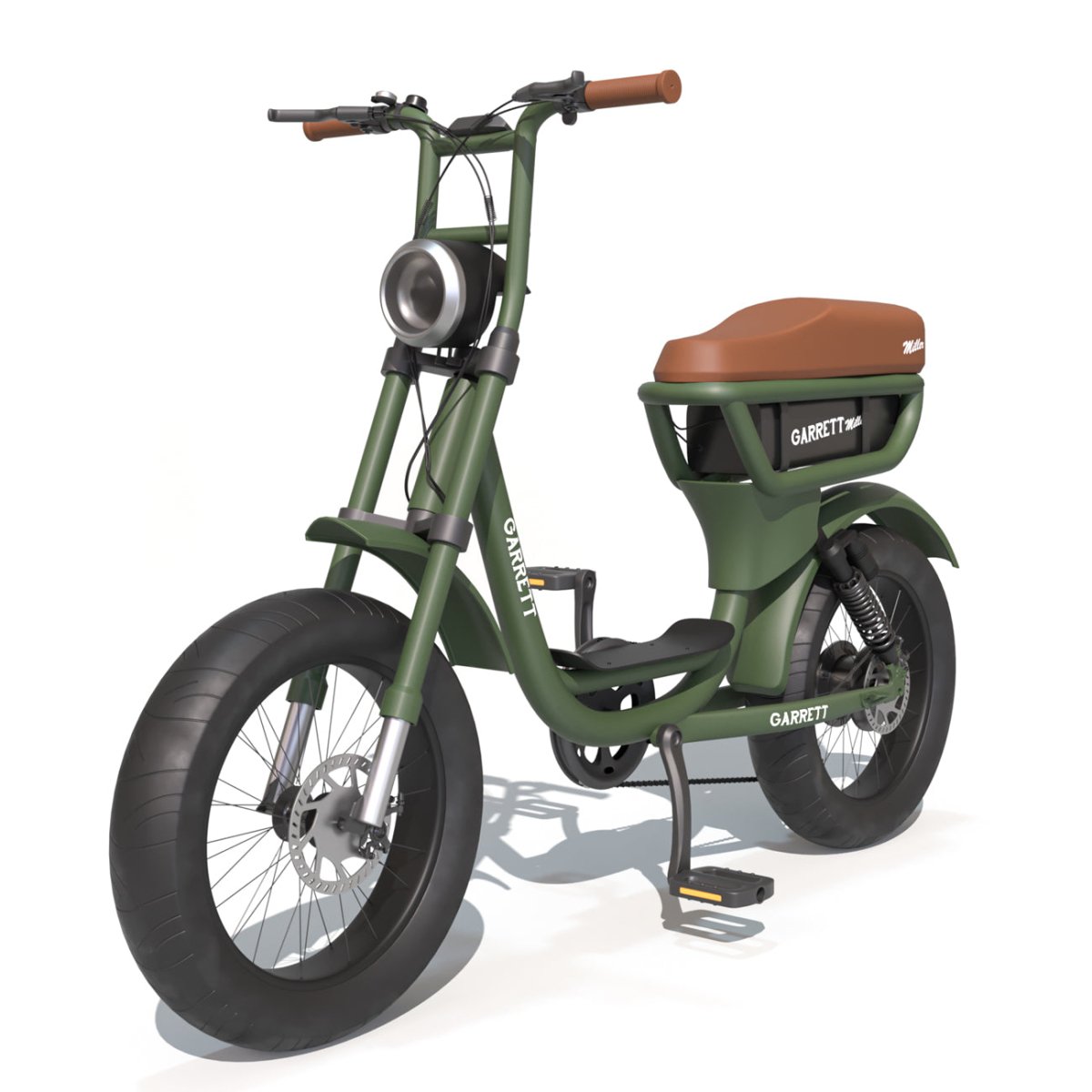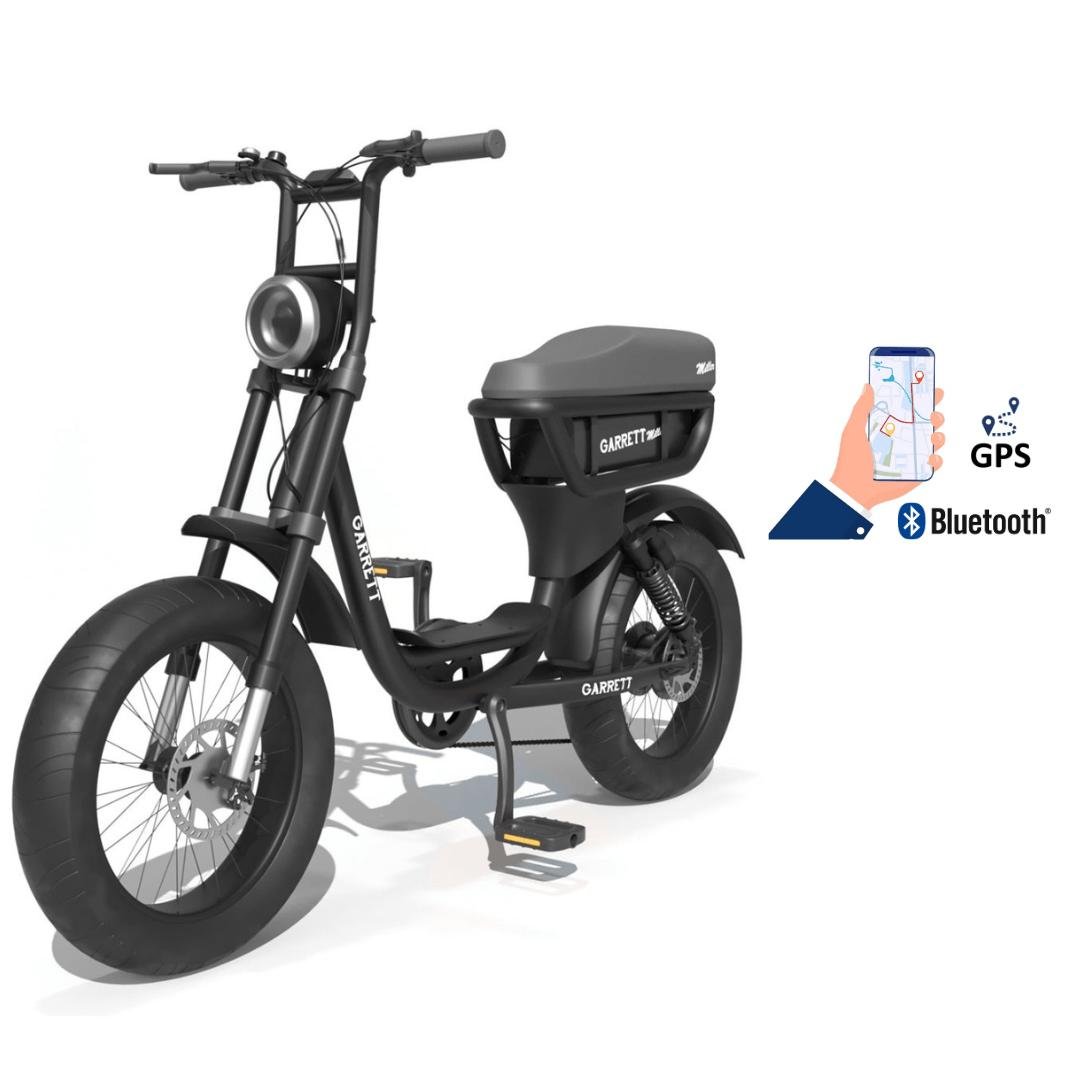In cities where space is limited and where you juggle multiple modes of transport, the electric folding bike becomes a real asset. Compact, easy to carry, and compatible with public transport, it effectively meets daily challenges such as: avoiding theft in the cellar, protecting your electric bike from bad weather on the balcony, and optimizing every square meter at home. Discover in this article all our tips for properly storing your electric bike in an apartment.
Why adopt an electric folding bike when living in an apartment?
When living in an apartment, space is often limited and bike storage rooms are rare or insecure. Add to that increasingly multimodal travel, and the electric folding bike quickly becomes an obvious choice. It perfectly adapts to the constraints of daily city life.

Space saving and theft protection
The main advantage of an electric folding bike in an apartment is its minimal footprint. Once folded, it easily slides under furniture or into a corner of a room. Some models measure barely 59 cm high and 25 cm wide. This also avoids leaving your bike in a cellar that is often poorly secured, where thefts are frequent. You thus gain peace of mind and space at home.
Intermodality and easier travel
Another major advantage: its ability to slip everywhere. Folded, your bike becomes simple luggage and easily fits on the subway or train, even during rush hours. You can thus combine biking, public transport, and walking without constraint. It’s also an excellent way to avoid traffic jams and reduce your spending on gas or subscriptions.
Technical criteria for choosing an electric folding bike suitable for an apartment
Before giving in to an electric folding bike, take the time to study its technical features. These details can transform your daily life in an apartment: weight, folded dimensions, folding system, range… so many criteria that will make the difference between a bike you love and a machine you dread handling.

Weight and compactness once folded
In an apartment, every kilo counts. Folding electric bikes weigh on average between 13 and 19 kg, but some high-end models weigh barely 13 kg. This criterion is essential if you have to carry it up stairs or store it high up. The Onemile Nomad electric bike, for example, combines lightness and compactness with only 17.9 kg and ultra-reduced folded dimensions.
Folding system and time
The speed of folding is a real daily comfort. Some bikes fold in 6 seconds, while others take up to a minute. Favor models equipped with quick locks and markers that allow you to keep the handlebar and saddle settings. You will save precious time with each trip.
Range and battery type
In the city, a real range between 20 and 60 km is more than enough for daily trips. Ideally, choose a bike with a removable battery: you can recharge it directly at home without having to bring the whole bike into your living room. Some recent models even include USB-C ports for even more convenient use.
Weight distribution and maneuverability
The comfort of carrying and riding also depends on weight distribution. Bikes with the battery under the luggage rack or front motor provide good overall balance and make handling by hand easier. A point to check if you often have to carry your folding bike up or down in an elevator or stairs.


Co-ownership regulations: what you need to know to avoid unpleasant surprises
In an apartment, you don’t always do what you want, especially when it comes to common spaces. Transporting, storing, or even displaying your folding electric bike can quickly become a topic of discussion… or even tension with neighbors. A quick overview of the rules to know to stay within the limits.

Transporting the bike in common areas: what is allowed
Carrying a folding bike in stairs or the elevator is generally not prohibited, provided it is folded and clean. However, some co-ownership regulations govern these movements to prevent damage or nuisances.
The right reflex: avoid peak hours, limit contact with walls, and ensure that the bike does not dirty the common areas. It is often a matter of common sense and respect for the shared environment.
Parking in hallways: a false good idea
Even when well folded, a bike has no place in a hallway or on a landing. These areas must remain clear for safety reasons, especially in case of evacuation. The co-ownership regulations are often clear on this point: no object should clutter common access areas.
In case of inspection or complaint, the occupant is held responsible. It is therefore better to avoid leaving anything there, even temporarily.
Private balcony: allowed, but with conditions
On a balcony, it’s a different story. In principle, it is a private space, so the folding bike can be stored there. That said, some co-ownerships impose aesthetic rules: prohibition of hanging objects on railings, requirement for visual discretion, or ban on covers visible from the street.
To avoid conflicts, it is better to choose a discreet cover and ensure the bike remains unobtrusive from the outside.
The co-ownership regulations: the reference to consult
Each building has its own rules, voted on in the general assembly. These rules determine what is allowed or not, whether for the use of common areas or the arrangement of a balcony.
Before installing a storage system or regularly taking a folding bike in the elevator, it is strongly advised to consult this document. It is available from the building manager or the property owner.
Where and how to store your folding electric bike in an apartment?
When you have neither a bike room nor a secure balcony, you need to be clever to store your folding electric bike without cluttering your interior. Fortunately, this type of bike is designed to fit into the smallest nooks. Here are our tips to find the best spot for it in your home.

Strategic locations
The folding electric bike easily slides under a bed or sofa, and some models fit in a closet or an entryway corner. If you have a balcony, plan for a waterproof cover and a protective mat to avoid moisture marks and extend the equipment's lifespan.
Practical supports and accessories
To further optimize space, consider swivel wall hooks or multifunction shelves like SPORTNOW that combine decoration and smart storage. If your ceiling is high enough, a pulley system is also an excellent option to hang your bike without obstructing movement.
Protecting your interior and your bike
To avoid scratches and dirt in your apartment, it is recommended to use a fleece cover suitable for the folded size. A non-slip mat will protect your floor from possible marks, and simple silicone pads will be enough to prevent marks on nearby walls or furniture.
Usage and maintenance tips in an apartment
To keep your folding electric bike in good condition and protect your apartment, a few simple steps are enough. Between regular dusting, checking components, and managing the battery, these maintenance tips will help you extend the life of your bike and keep your interior spotless.

Regular maintenance
After each use, a dry cloth wipe removes dust and urban splashes that could stain your floors or furniture.
Also remember to lubricate the chain and electrical connectors to maintain smooth operation and prevent premature wear. Don’t forget to regularly check tire pressure and brake efficiency to stay safe.
Battery management and storage
The battery also deserves special attention. Avoid letting it fully discharge and favor partial recharges, ideally keeping it between 20% and 80%.
Store it in a dry and temperate place to preserve its performance and avoid any deterioration. If you need to store your electric bike for several days, remove the battery and keep it away from moisture and heat sources.
FAQ
Can the bike emit odors or annoying residues in a small living space?
If it is well maintained, no. But after a ride in the rain or dusty area, grease, tire, or moisture residues can indeed be troublesome in a small enclosed space. A breathable cover, a quick wipe, and an absorbent floor mat are usually enough to avoid such inconveniences.
Are there risks to tinkering with your electric bike indoors?
It is better to avoid doing major mechanical or electrical repairs in a living room or bedroom, especially with greasy or sensitive components. For small adjustments (inflating, seat adjustment, brake check), no problem, but more technical operations, like a hydraulic brake bleed or motor replacement, should ideally be done in a ventilated and protected space.
Is using an extension cord a good idea to recharge the battery more easily?
Using an extension cord can be a temporary fix, but it is not always recommended, especially for prolonged loads. An ill-suited or too thin extension cord can heat up or cause voltage drop. It is better to use a direct wall outlet and, if necessary, buy a longer charging cable approved by the manufacturer.
Conclusion
Easy to carry, store, and recharge indoors, the folding electric bike adapts to the constraints of small living spaces. It ticks all the boxes for city dwellers seeking freedom and practicality. To get the best out of it, make sure to choose a model suited to your needs, taking into account weight, range, and compactness. Need advice to find the one that will accompany you daily? Quickly discover the Weebot selection and chat with our experts.

